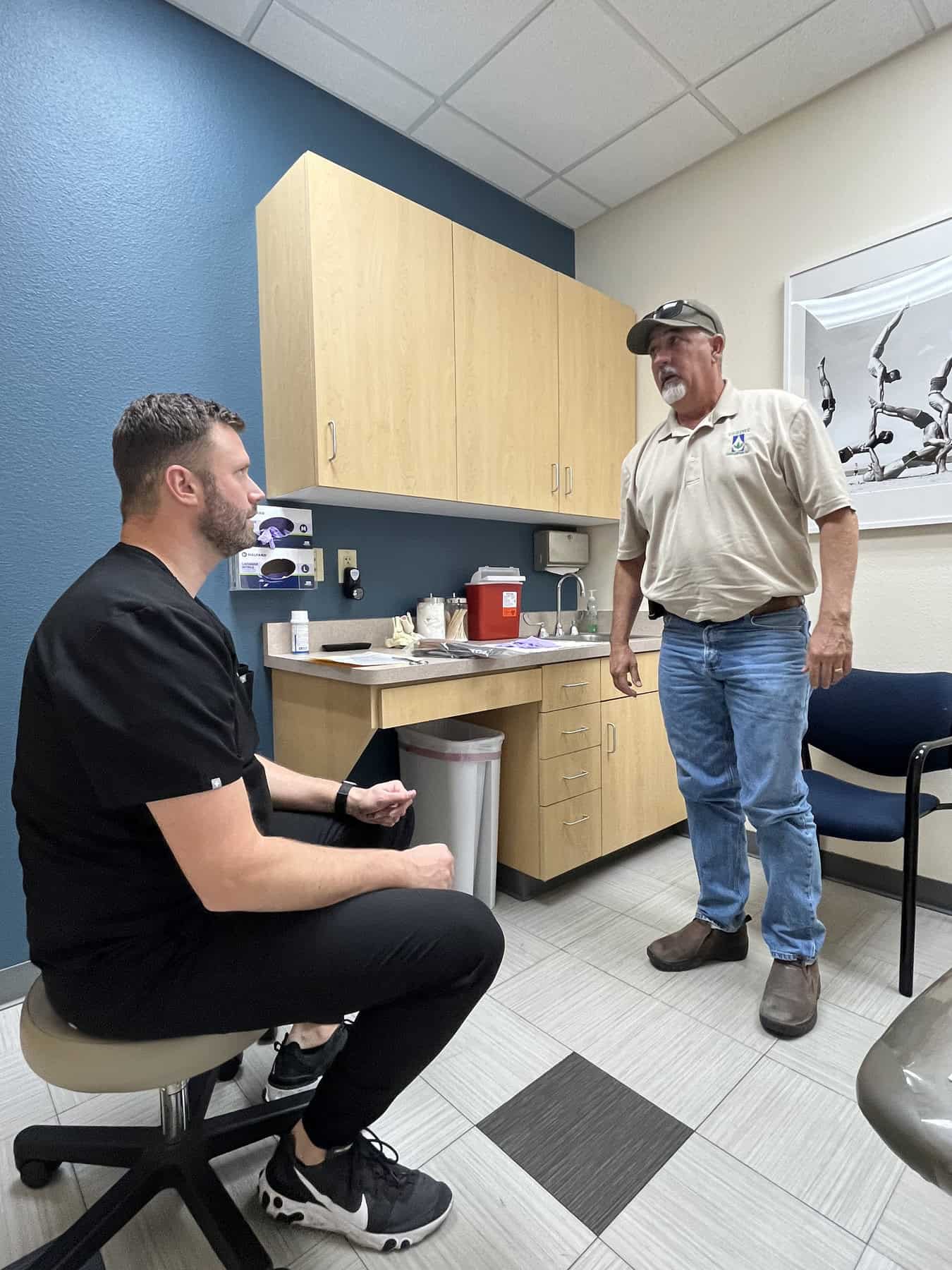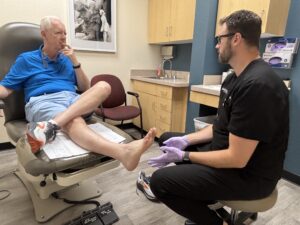Living with diabetes comes with its own set of challenges, but one area that often goes unnoticed is foot health. Diabetes can lead to reduced blood flow and nerve damage, making your feet more vulnerable to injuries, infections, and complications like ulcers. Fortunately, with the right care and attention, you can protect your feet and prevent these issues from escalating.
Why Diabetic Foot Care Matters
Diabetes can affect your feet in several ways:
- Reduced Blood Flow: Poor circulation slows the healing process, making even minor injuries more likely to develop into serious problems.
- Neuropathy: Nerve damage can lead to a loss of sensation, meaning you might not notice cuts, blisters, or other injuries until they worsen.
- Increased Risk of Infections: High blood sugar levels can impair your body’s ability to fight infections, making wounds harder to treat.
Proactively caring for your feet can help prevent complications and improve your overall health.
Essential Tips for Diabetic Foot Care
1. Inspect Your Feet Daily
Make it a habit to check your feet every day. Look for cuts, blisters, redness, swelling, or any changes in skin or nail color. Use a mirror to see the soles of your feet, or ask a family member for help. Catching issues early can make a big difference.
2. Keep Your Feet Clean and Dry
Wash your feet daily with lukewarm water and mild soap, taking care to dry them thoroughly, especially between the toes. Moisture can lead to fungal infections, so keeping your feet dry is essential.
3. Moisturize, But Avoid the Toes
Apply a moisturizing lotion to prevent dryness and cracking, but avoid putting lotion between your toes, as excess moisture can encourage bacterial growth.
4. Trim Your Nails Carefully
Trim your toenails straight across and file the edges to prevent ingrown toenails. If you have trouble seeing or reaching your feet, seek professional help from a podiatrist.
5. Wear Proper Footwear
Choose shoes that fit well and provide ample support. Avoid tight shoes or those with seams that could cause irritation. Diabetic-friendly footwear or custom orthotics can provide extra protection and comfort.
6. Avoid Walking Barefoot
Walking barefoot increases the risk of cuts and injuries that can go unnoticed. Always wear shoes or slippers, even indoors.
7. Manage Your Blood Sugar Levels
Good blood sugar control not only helps your overall health but also improves circulation and reduces the risk of nerve damage.
8. Schedule Regular Podiatry Visits
Routine check-ups with a podiatrist are crucial for early detection and management of foot issues. Your podiatrist can identify problems before they become serious and provide professional care as needed.
Recognizing Signs of a Problem
It’s important to know when to seek medical attention. Contact your podiatrist immediately if you notice:
- Persistent redness, swelling, or warmth.
- Non-healing wounds or ulcers.
- Pain in your feet or legs, especially while walking.
- Changes in skin color or texture.
- Signs of infection, such as pus or an unpleasant odor.
The Role of Professional Care
At Preferred Foot & Ankle Specialists, we specialize in diabetic foot care, offering routine check-ups, wound care, and preventive treatments tailored to your needs. Our team is dedicated to helping you maintain healthy feet and avoid complications, so you can stay active and confident.
Take Control of Your Foot Health Today
Diabetic foot care doesn’t have to be complicated, but it does require consistency and vigilance. By following these essential tips and partnering with a trusted podiatrist, you can protect your feet and reduce the risk of complications.
Schedule your diabetic foot care consultation today with Preferred Foot & Ankle Specialists and take the first step toward healthier, happier feet.





